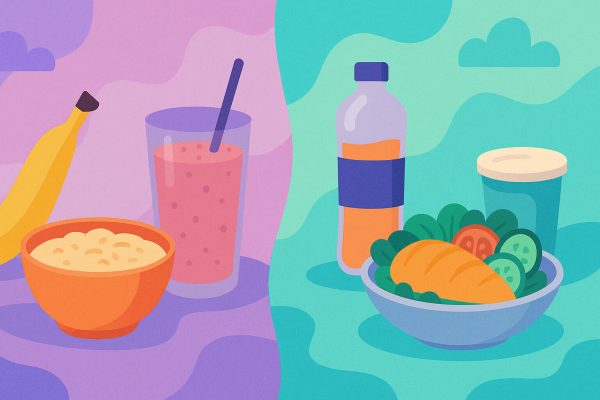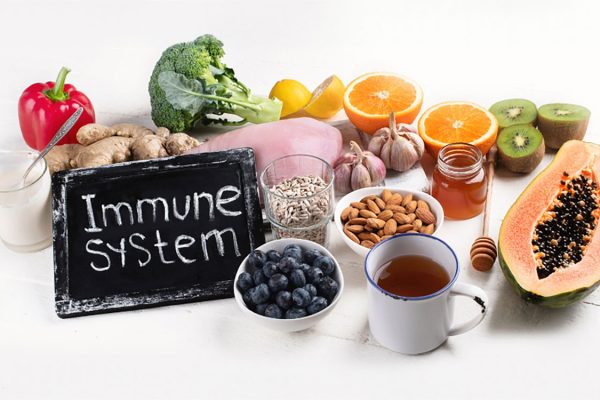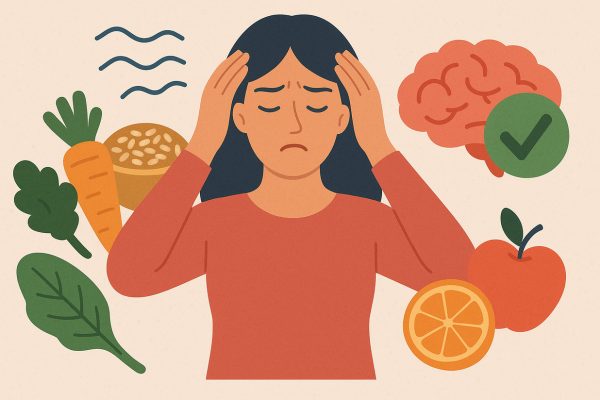Food and a Body That Resists Time
As we age, the body becomes more sensitive to everything we eat. Good nutrition is not just about preventing hunger—it’s about maintaining the health of bones, muscles, and organs. The body becomes more sensitive to deficiencies in certain vitamins and minerals, making a balanced diet essential.
Many elderly individuals experience digestive issues or loss of appetite. As a result, even if food intake seems sufficient, there may still be a lack of nutrients. Foods rich in nutrients—like fruits, vegetables, fish, and whole grains—can help meet the body’s needs even in small amounts.
Food can be a tool for strengthening health. A simple example: eating a banana every day helps provide potassium, which is vital for heart health. Small steps may seem minor, but they have lasting effects over time.
Protecting the Heart With the Right Diet
The heart is one of the organs most affected by aging. Because of this, eating nutritious food is a big help in preventing conditions like high blood pressure and cholesterol. Foods rich in omega-3 fatty acids, such as fish, help regulate heart rhythm.
Reducing salt and processed foods is a simple but effective way to ease the heart’s workload. While it’s tempting to indulge in greasy dishes now and then, making lighter and fresher choices daily is more important for long-term heart health.
In many communities, simple lifestyles and traditional diets are keys to longevity. Embracing this principle can give the heart more strength and vitality, even into the senior years.
Bone and Muscle Health Through Food
As people age, bones and muscles weaken. Common complaints include joint pain and physical fatigue. But with proper nutrition, this can be prevented or at least slowed. Calcium and vitamin D are essential for strong bones.
Calcium is found in milk, tofu, and leafy greens like moringa. Vitamin D comes from sunlight and foods such as eggs and fish. A lack of these nutrients leads to brittle bones.
Protein is not just for athletes. As we age, it becomes more necessary to maintain muscle mass. Eggs, chicken, mung beans, and fish are easy to find and gentle on the stomach. With adequate protein, movement becomes easier and injuries are less likely.
Brain and Cognitive Health
Nutrition isn’t just for the body—it also affects the mind. Foods rich in antioxidants, like berries and sweet potatoes, help improve clarity and memory. Omega-3 is again mentioned because it supports nerve connections in the brain.
If the diet lacks essential nutrients, forgetfulness and mental fatigue become more common. Studies show a link between B12 deficiency and cognitive decline in older adults.
Food doesn’t need to be expensive or complicated to support mental health. Often, simple home-cooked meals with less sugar or oil are enough. Eating regularly and on time also helps prevent energy crashes and mood swings.
Digestive Support and a Healthy Gut
Digestive issues are common with age. The digestive process slows down, often leading to bloating, constipation, or loss of appetite. This is where fiber from fruits, vegetables, and whole grains plays a crucial role.
Without enough fiber, bowel movements become difficult and stomach discomfort may occur. Proper hydration is always necessary for fiber to function well. Even a glass of warm water in the morning makes a big difference.
Probiotics, found in yogurt or fermented foods, help balance the good bacteria in the gut, improving digestion and immunity. A healthy gut contributes to overall well-being.
Energy for Daily Tasks
Even if less active than before, older adults still need enough energy for daily tasks. Carbohydrates are not the enemy—they’re the body’s fuel. But complex carbs like brown rice, oats, and sweet potatoes are better choices than instant noodles or white bread.
Lack of energy leads to fatigue, dizziness, and irritability. That’s why it’s important to ensure each meal includes nutritious food—even in small portions.
Healthy snacks like bananas, nuts, or homemade sweet potato chips are great alternatives to processed options. They benefit not only the body but also improve mood.
Supporting Skin and Hair Health
The skin and hair also change with age—becoming drier, thinner, or more fragile. But with the right nutrition, it’s possible to maintain a healthy glow. Vitamin C from citrus fruits supports collagen production, while zinc and biotin are great for hair.
Avoid excessive sugary and oily foods, as they affect skin quality. More vegetables, fruits, and clean protein help keep skin glowing even with age.
The effects of a healthy diet on skin may not be immediate, but over time, you’ll notice smoother, more vibrant skin—and greater confidence in appearance.
Preventing Illness Through Food
Some illnesses are common with aging—diabetes, arthritis, and others. But aging doesn’t guarantee illness. With proper diet, the risk can be reduced. Foods low in sugar and salt but high in antioxidants help protect against many conditions.
For example, ginger and turmeric have natural anti-inflammatory properties. They’re not medicine, but when included in a regular diet, they ease discomfort and promote well-being.
As elders often say, “An ounce of prevention is worth a pound of cure.” Through food, we take an active role in health—rather than relying solely on medication or doctors.
Emotional Well-being and Relationship With Food
Food is not just a physical need—it’s emotional, too. With age, appetite often declines, sometimes due to loneliness or isolation. So eating should also bring joy and connection.
Meals with family, gardening in the backyard, or simply cooking a favorite dish bring purpose and happiness. These experiences aren’t measured in calories, but in the smiles they create.
When food is paired with positive feelings, healthy habits are easier to maintain. The body benefits not only from nutrients but also from the care and joy in every bite.
A Beautiful Life Nourished by Nutrition
Aging is not a barrier to living vibrantly. Every wise food choice strengthens the body, mind, and spirit. No need for expensive supplements or trendy diets. All that’s needed is understanding, patience, and a little discipline in daily choices.
No matter the age, every step toward healthier living matters. Every meal, every dinner is a chance to get closer to that goal.
Life feels more beautiful when you feel well—and often, it all starts with what’s on your plate.




